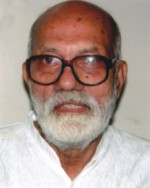| Remebrance
Abu Bakr: 'Read the editorials' he said
Syed Badrul Ahsan
 |
Muhammad Abu Bakr |
Muhammad Abu Bakr, the man who taught me all about reading newspaper editorials, has died. He was an individual I first knew in childhood. I still recall those early days, when I went to nursery class in the late 1950s, when Abu Bakr, the man I revered as 'uncle', made it a point to know how I was doing in my studies. I told him, my shyness refusing to go away, that I was doing well. He would pull me over to his lap, pull my cheeks lovingly and tell me to read as much as I could.
As I progressed to increasingly higher levels at school, Abu Bakr noted with patent happiness how serious I was getting about reading newspapers. He would tell my parents that my reading habits were developing just fine, although he was amazed that at an age when children played with toys or took an interest in games I was more into trying to understand politics around the world. There were times when he would visit our home in Quetta, where he served in various senior positions at the geological survey, and quiz me on what was going on around the globe. He would pick countries at random and ask me to name their capitals or their leaders. At other times, he would pick the capitals, then ask me to link them to the countries of which they were a part. Muhammad Abu Bakr was one of those men, friends of my father's, who took delight in the way my education was progressing.
On a cold morning in Quetta, I chanced to see Abu Bakr at his residence. Books, journals and newspapers were spread across the table before him. I picked up a copy of Dawn and went straight to the page where articles from writers were on display. He noticed that I was into an article, seriously, and stayed silent as long as I went on reading the piece. Once I was done, he told me that an important way for a reader to form an opinion or respond to an opinion was to read the editorials of a newspaper. Make sure, he smiled and told me, that you do not ignore the editorials even as you go looking for the juicy bits in a newspaper. It was advice that I was to follow scrupulously, and gain hugely from. It was education I have tried passing on to those who have come after me. Long years after Abu Bakr proffered his advice on reading editorials, Waheedul Haque carried the idea a little further forward when he suggested that I look through the editorials of The Economist: they were pungent and they were brief.
Muhammad Abu Bakr led a simple, quiet life. He never married and why he did not led to quite a number of whispered, curious questions among his generation. But no one asked him, and he felt little need to explain. In physical appearance, he always reminded me of the late UN Secretary General U Thant. There were times when I wondered if he had not sprung from somewhere in Southeast Asia. There was a softness about his speech. I never saw anger come over him, but there was forever the smile that played around his mouth, the kind that embodies decency for so many of us. In my early days at Dhaka University, on occasional visits to my father at his office, I trotted up a flight of stairs to see Abu Bakr. He was now director general and yet to me he remained the uncle who had given me the special gift that only a book can be. In the last decade or so, there was not much of a chance I had of seeing him. Everyone else in his generation appeared to be dying and getting forgotten. But there was a quiet afternoon once when I spotted him, in white beard newly grown, taking what appeared to be a walk. I caught up with him, realised that he was finding it hard to recognise me. Once I told him who I was, though, it was my childhood that came back in a rush, to him and to me. Once again there was the old smile in him, once again that avuncular touch of his hands on my cheeks. He told me how much he enjoyed reading my columns. I mumbled an answer: 'You showed me the way, Uncle, long ago with your advice about editorials'. He was touched that I remembered.
My uncle, my good friend, my teacher Muhammad Abu Bakr lies buried in his village in Gopalganj. With him gone, one more link with the past comes loose. The stars are a little pale these monsoon evenings.
Copyright
(R) thedailystar.net 2007 |
|
